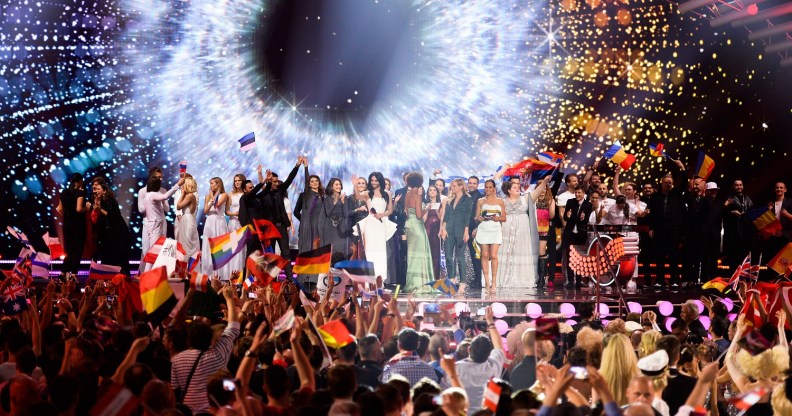Eurovision announces drastic shake-up of ‘boring’ voting segment

The Eurovision Song Contest will undergo a drastic shake-up this year, in a bid to improve the voting and results system.
Ahead of the contest, which is set to take place in Stockholm in May, the European Broadcast Union and Swedish broadcaster SVT this week announced changes to the iconic system of voting.
The camp contest announced a series of reforms which will change the second half of the show – cutting down on the 40-plus minutes of people reading numbers off screens.
Under the current rules, half of each country’s votes are comprised of public televoting, weighted equally with a ranking from a national jury. These combined votes are read out by a spokesperson, who awards points from 1 to 12.
However, the changes will allow Eurovision to separate out the two systems and cut down the roles of the unpredictable ‘national spokespeople’ – who will now just briefly announce the winner of their jury vote, rather than read out a list of scores.
After this, the host of the contest will reveal the combined results from televoting across all of Europe in one go – allocating hundreds of points all at once, revealing the winner.
Eurovision Song Contest producer Christer Björkman explained of the issues previously: “As a producer for the TV show, you really want to do the perfect show. This show is fantastic all the way up until the points come in. Then you lose control.”
This has led to situations where the winner becomes obvious well before the voting is finished – a problem that will be reduced by presenting the televote all in one go, at the end.
Martin Österdahl, Executive Producer for Eurovision 2016, explained: “In previous years the winner has been known for up to 20 minutes before the end of voting and that’s not good TV. This format change will inject a new level of excitement into the finish of the Eurovision Song Contest”.
Eurovision exec Jon Ola Sand said: “This new way of presenting the votes is a big step forward, both to make a better television show as well as a more exciting competition.”
He added: “It is fitting that this change to the Contest’s iconic scoring sequence will be debuted in Stockholm, where the famous douze points system was introduced in 1975.”

However, the new system will also make obvious any discrepancy between the public and the juries – which could lead to on-stage controversy.
In 2015, a breakdown of numbers revealed that Italy’s Il Volo actually won the public vote across Europe – but was ranked so poorly by the juries that Sweden scooped the trophy.
Though this passed mostly unnoticed under the previous system, it could lead to on-stage drama in future if the ‘winner’ of the public vote fails to actually win.
The Eurovision Song Contest Grand Final takes place on May 14. The UK’s entry will be decided on February 26, in a live selection aired on BBC Four.

